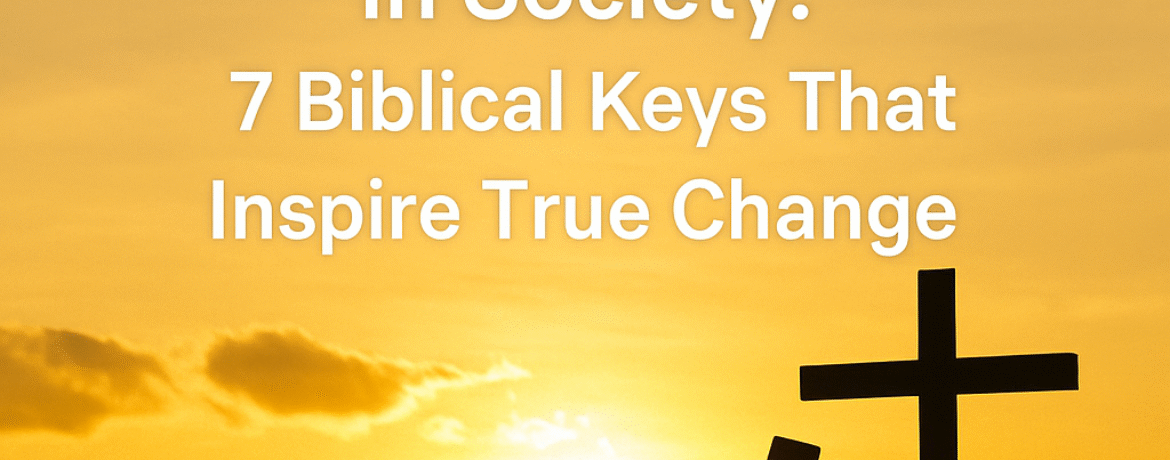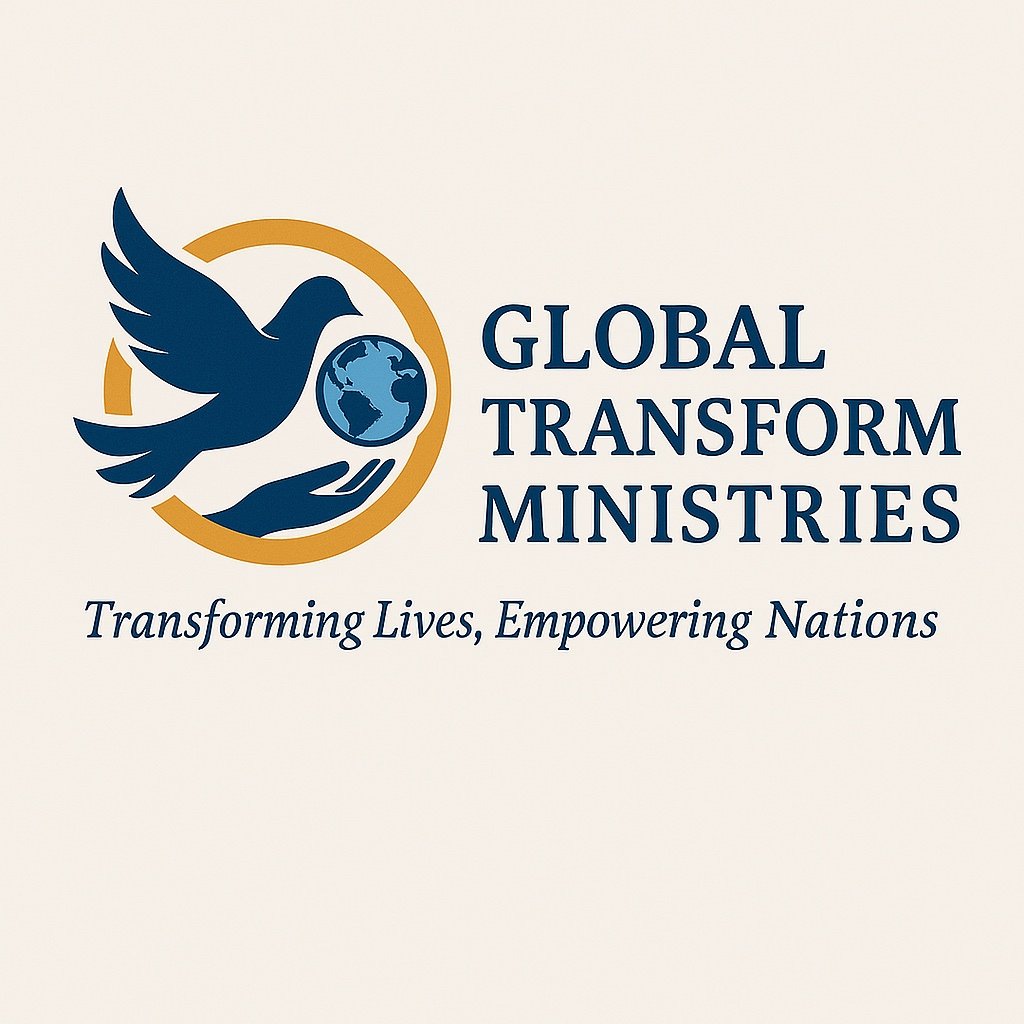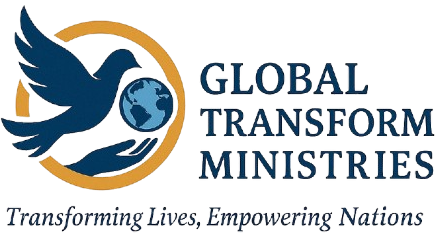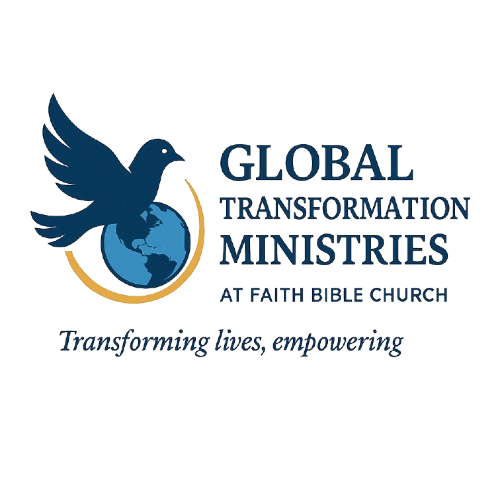
- Church Stories
- Daily news
How Faith Can Lead to Real Transformation in Society: 7 Biblical Keys That Inspire True Change
How Faith Can Lead to Real Transformation in Society: 7 Biblical Keys That Inspire True Change
Meta Description: How Faith Can Lead to Real Transformation in Society—Explore 7 powerful biblical principles that can reshape communities and bring lasting change through faith-driven action.
Introduction
Defining Faith in a Societal Context
Faith, in its simplest form, is trust in the unseen. But when viewed through a biblical lens, it becomes a powerful agent of transformation. Hebrews 11:1 defines faith as “the substance of things hoped for, the evidence of things not seen.” Society, burdened with injustice, poverty, and disconnection, is in desperate need of what true faith can bring—hope, love, and restoration.
Why Transformation Matters Today
Transformation isn’t just about moral reform; it’s about renewal at every level—individual, community, and global. As crises intensify globally, from economic instability to cultural confusion, people are searching for a compass. Faith offers that guiding light, pointing societies toward righteousness, justice, and healing.
The Biblical Foundation of Societal Transformation
Faith in the Old Testament: Catalysts for Change
Abraham’s obedience, Moses’ leadership, and the courage of Esther illustrate how faith consistently led individuals to influence and transform entire nations. Each acted not for personal gain but to fulfill God’s purposes in their time.
Jesus and the Kingdom Message: A Transformative Paradigm
Jesus didn’t come to start a religion—He announced a kingdom. His teachings in Matthew 5–7 (the Sermon on the Mount) flipped societal norms, calling people to love enemies, pursue justice, and walk in humility. His faith-fueled life brought healing, unity, and truth.
How Personal Faith Inspires Public Good
From Inner Renewal to Outer Action
Transformation begins in the heart. Romans 12:2 urges believers not to conform but to be transformed by renewing their minds. This internal change naturally spills over into public life—leading to acts of kindness, justice, and reform.
Testimonies of Faith-Led Societal Reform
History is replete with individuals whose personal faith birthed societal impact—Martin Luther King Jr., William Wilberforce, and Mother Teresa to name a few. Their faith didn’t remain private—it ignited movements.
Faith and Justice: Building Fairer Systems
Micah 6:8 and the Call to Justice
“He has shown you, O man, what is good… to act justly, love mercy, and walk humbly.” This verse has been the rallying cry for Christians engaged in justice reform. Faith compels us to advocate for the oppressed and confront unjust systems.
Faith Communities Advocating Legal and Social Reform
From anti-human trafficking campaigns to prison ministries, faith communities are on the front lines. Organizations like International Justice Mission (IJM) work globally, applying biblical justice to real-world legal systems.
The Role of the Church in Societal Transformation
The Early Church Model (Acts 2 & 4)
The early believers shared everything in common, cared for the poor, and gained favor with all people. Their communal lifestyle wasn’t just spiritual—it was practical and impactful.
Modern Day Ecclesia: A Force for Change
Today’s churches are called to be more than worship centers—they must be community hubs, advocacy platforms, and centers of healing. Transformation starts in the pews and ripples into the streets.
Faith as a Catalyst for Community Building
Hebrews 10:24-25 and Collective Action
“Let us consider how to spur one another on toward love and good deeds…” Community-building is central to faith. It creates spaces of accountability, encouragement, and shared mission.
Faith-Based Community Development Programs
Many churches now run initiatives addressing homelessness, job training, literacy, and addiction recovery—demonstrating faith’s power to mend broken social fabric.
Economic Empowerment Through Faith Principles
Stewardship and Generosity (2 Corinthians 9)
Faith teaches that everything belongs to God. Generosity, therefore, becomes a lifestyle. Faith-driven giving fuels microfinance, business incubators, and relief efforts globally.
Biblical Entrepreneurship and Kingdom Economics
Christian entrepreneurs are redefining success—measuring it not just in profit, but in impact. Kingdom economics prioritizes people over profits and sustainability over short-term gain.
Education and Faith: Transforming Minds and Hearts
Proverbs 22:6: The Power of Godly Teaching
“Train up a child in the way he should go…” Education is a spiritual act. Faith-based schools integrate biblical values with academic excellence, shaping future leaders.
The Role of Christian Schools and Colleges
Institutions like Wheaton College and Biola University train students to think biblically and act justly—preparing them to be salt and light in every sector of society.
Faith and Health: Healing Societies Spiritually and Physically
James 5:15 and Holistic Healing
Faith is not just spiritual—it touches physical and emotional health. Churches offer prayer, counseling, and wellness programs, especially in underserved communities.
The Role of Churches in Mental Health and Wellness
Many faith communities now offer mental health support, workshops, and partnerships with therapists—destigmatizing emotional struggles and offering holistic care.
Faith in Politics: Navigating Influence without Compromise
Daniel and Joseph: Models of Godly Governance
These biblical figures navigated corrupt systems with integrity. They show how faith can thrive in politics without losing moral footing.
Christians in Political Office Today
Faith-led leaders are impacting policy on issues like poverty, education, and human rights, proving that godly governance is both possible and powerful.
Faith and Environmental Stewardship
Genesis 2:15 and Creation Care
God’s first command was to “work and keep” the earth. Faith motivates believers to steward creation—not exploit it. Environmental activism can be an act of worship.
Faith-Based Responses to Climate Change
From planting trees to clean energy initiatives, churches are leading local efforts to combat climate change and teach environmental responsibility.
Faith in Crisis: Transforming Tragedy into Testimony
Romans 8:28 in Action
Tragedy often tests faith, but it can also reveal its power. Believers around the world have turned personal loss into ministries of comfort, healing, and hope.
Stories of Post-Disaster Faith Responses
Whether it’s post-hurricane relief in the U.S. or earthquake recovery in Haiti, faith groups consistently show up early and stay late—embodying Christ’s compassion.
Global Movements Fueled by Faith
The Abolition of Slavery and William Wilberforce
Wilberforce’s faith drove him to end the British slave trade. His story proves that persistent, prayerful action can change the course of history.
Modern Faith Movements for Justice
Today’s equivalent includes efforts like the Lausanne Movement and global prayer networks, uniting believers across borders to influence culture and policy.
Overcoming Opposition: The Cost and Reward of Transformative Faith
Matthew 5:10-12 and Persecution
True transformation often comes at a cost. Jesus promised persecution for the righteous—but also great reward. Modern believers face ridicule, loss, or even martyrdom.
Standing Strong in a Post-Christian Culture
Staying faithful in a skeptical world takes courage, but it’s through steadfast witness that societies are slowly but surely changed.
Practical Ways to Activate Faith for Societal Change
- Start a prayer group focused on community needs
- Volunteer with a faith-based organization
- Advocate for justice using biblical principles
- Mentor youth through your church
- Support or start a local outreach ministry
Frequently Asked Questions
Q1. Can faith really change an entire society?
Yes, history and scripture affirm that faith can inspire individuals who lead sweeping societal change.
Q2. What’s the first step for someone wanting to make a difference through faith?
Begin with prayer and personal transformation. As God changes your heart, He’ll reveal your mission.
Q3. Is faith relevant in secular societies?
Absolutely. Faith brings moral clarity, compassion, and community-building—even in non-religious contexts.
Q4. How can churches better serve their communities?
By listening, being present, offering practical help, and being a consistent moral voice.
Q5. What Bible verses support societal transformation?
Micah 6:8, Romans 12:2, Matthew 5–7, and James 2:14-17 all emphasize actionable faith.
Q6. How do I avoid burnout while engaging in societal change?
Remain rooted in God’s Word, seek accountability, and rest intentionally.
Conclusion: A Call to Action for Faith-Driven Societal Transformation
The world doesn’t just need change—it needs godly change. Faith is the bridge between divine truth and societal transformation. Whether you’re a student, pastor, businessperson, or activist, your faith can be a tool for rebuilding families, reforming systems, and restoring communities. Don’t wait for perfect conditions. Take the first step in faith, and trust God to do the rest. Also read
Visit our shop

Welcome to Global Transformation Ministries (GTM)—where lives are restored, communities are lifted, and destinies are realigned through faith, prayer, and action in Montgomery County, Maryland and beyond
- 240-374-1814
- hello@joingtmmd.org
- Global Transformation Ministries 1645 Yale Place, Rockville, MD 20850

